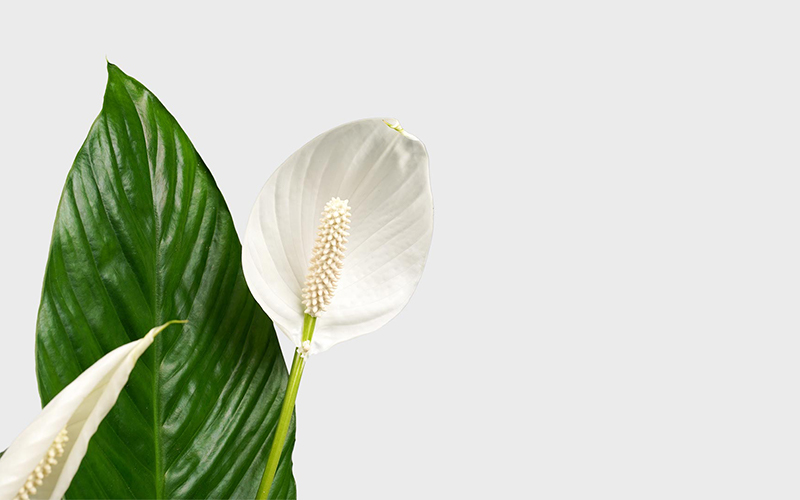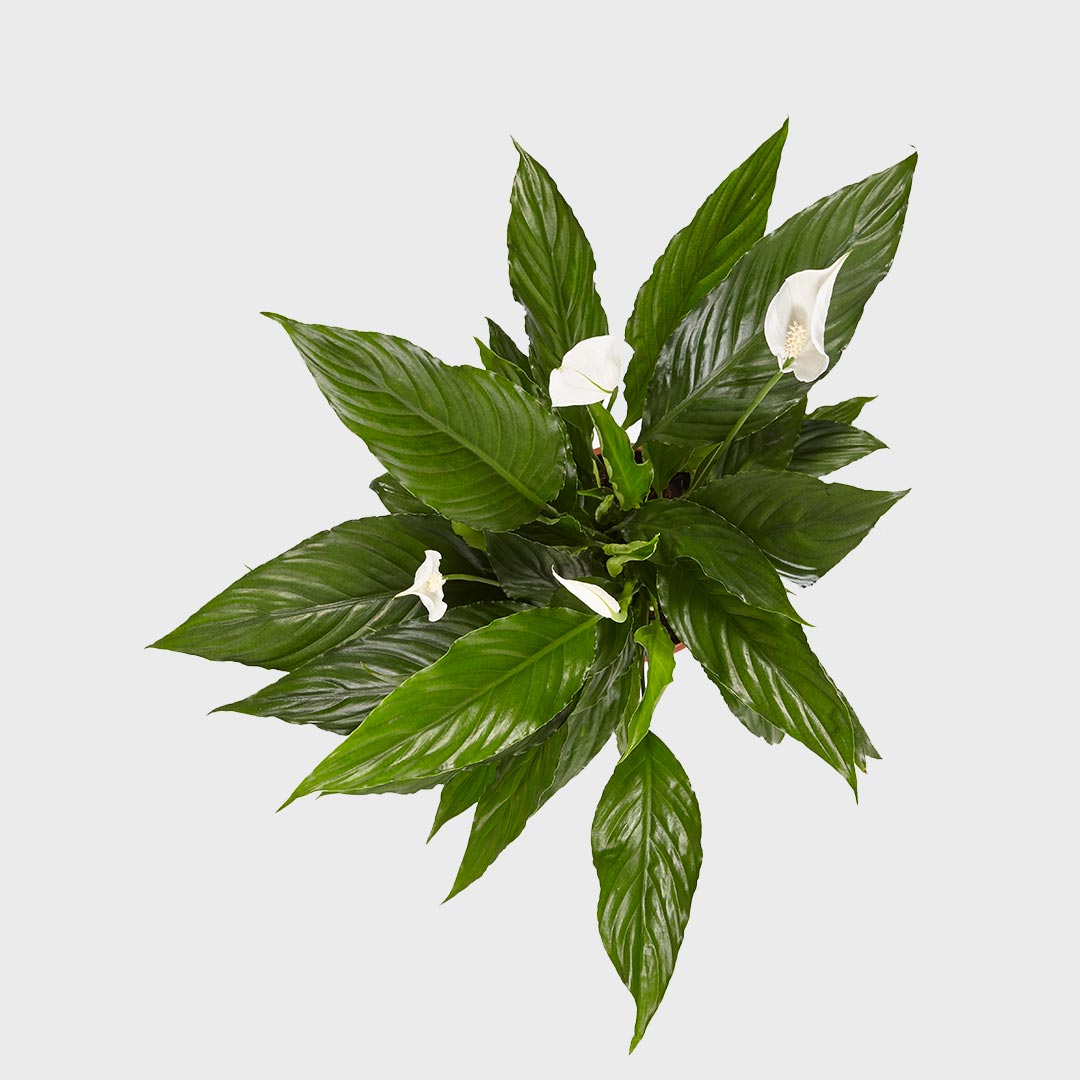
Deliver to
Europe
 English
English

The Spathiphyllum, also known as Peace Lily, has become a favorite houseplant for many because of its striking looks. This indoor plant is simple and easy to care for. It is perfect for beginners because it is so low maintenance. The combination of dark green leaves with white flowers gives this houseplant a stunning appearance and also makes it the ideal ornamental plant to give your space a tropical look.
Medium light
Water once a week
Toxic
Air-purifying
The Peace Lily likes to be placed in a spot with lots of light. It is best to place the plant in medium bright light. The Peace Lily prefers a spot next to a window on the west or east. A spot near the south is of course also possible. Make sure that the plant is at least 2 metres away from the window. When the plant receives too much (direct) sunlight, the leaves will start to scorch and turn brown. If the Peace Lily receives less light than it prefers, the plant will not flower.
If your Peace Lily gets too little water, the plant will begin to droop. It is important to always keep the soil of the Peace Lily slightly moist. You can check this to with your finger in the soil. Never let the Peace Lily dry out. Not even in winter! It is best to water the Peace Lily once a week in the growing period. In autumn and winter, give the Peace Lily less water, every two weeks.
The Peace Lily uses more energy from spring to summer to make new leaves. As a result, the plant needs extra nutrients. You can provide these nutrients by plant nutrition. We recommend giving plant nutrition once every month. From spring until autumn. After autumn and in winter it is better to stop giving extra nutrients. In the winter, plant nutrition can actually be harmful for the Peace Lily!
We recommend repotting the Peace Lily every 2 years. Repotting gives the plant new nutrients and more room for root growth. The airier soil is also very good for the water flowing through. The best period to repot is spring.
The most ideal temperature for a Peace Lily (Spathiphyllum) is between 18 to 29 degrees Celsius. It prefers a warm and consistent temperature, but can tolerate slightly cooler conditions. Although the Peace Lily can handle quite warm temperatures, this doesn't mean that it can also handle direct sunlight.
Pruning a Peace Lily can be helpful for this plant species. It can involve removing yellowed or browning leaves, trimming off spent flowers, or managing unruly growth. Use clean and sharp pruning tools to make precise cuts, and ensure the plant receives adequate care and maintenance for optimal growth and health.
If the air is too dry, the Peace Lily can suffer from spider mites. To prevent spider mites, it is best to use the plant sprayer once a week. Spider mites are an infection of mites on plants. You can recognise the infection by infected leaves and a kind of cobwebs. If you have come across spider mites, it is best to place the plant outside. Wind and moisture from outside will quickly keep the spider mite away.


The Peace Lily, or Spathiphyllum, can live for several years. They will bloom again and again. Don't throw away the Peace Lily after it has finished flowering!
Cut off all dead flowers of the Peace Lily. If you cut the flowers before they have completely died off, you will have a chance of getting new flowers.
As an indoor plant, a Peace Lily plant can bloom for about two months. Three months after the flowering period, the Peace Lily plant can flower again.
Yes, you certainly can. See our tips on how to propagate the Peace Lily.